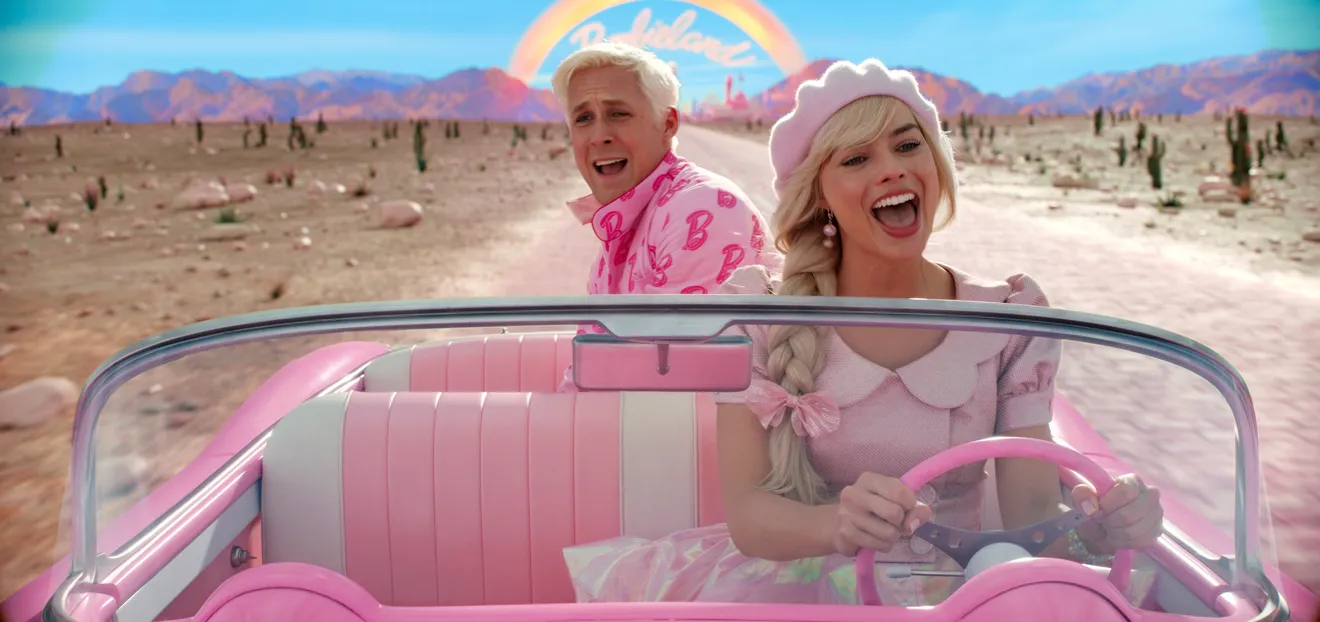I hadn’t planned on seeing the “Barbie” movie. I’m more of an “Oppenheimer” guy myself. But when the governor of Michigan carpet-bombs social media with a barrage of TikTok videos portraying herself as the ultimate ’70s-styled plastic doll girl boss, well, I just had to see what all the hype was about.
I invited my 16-year-old daughter, who agreed to be my translator and cultural guide should an aging guy like me have trouble interpreting the material. That being said, my daughter never owned a Barbie doll; you know, not wanting to saddle her with unrealistic beauty standards and all.
The idea of a pre-noon matinee had us giddy.
“Good morning, Barbie!” we shouted to every person we came upon. Didn’t matter if it was Carla at the concession stand, Dimitrious at the bagel shop or Clark, the guy in a pink shirt working at the construction site near the movie theater.
“Good morning, Barbie!”
“They used to call me that when I was working in Colorado” said Clark, an ironworker. “I had blond hair down to my butt then. I was actually thinking about getting a Barbie sticker for my hard hat.”
Inside the movie theater, nobody was checking for tickets. I resisted the urge to teach my daughter the art of cineplex misconduct. Masculine toxicity at its worst.
We inquired at the popcorn counter about a sticker for Construction Worker Barbie outside.
“I’m sorry,” said Concession Stand Barbie. “The Barbie army cleaned us out on opening night. There’s nothing left. Not even cups. I thought those girls were going to riot. They were just really mad.”
We got a bucket of popcorn and soda pops in the old, boring cups. Then we paid for our tickets and went in.
On its surface, the film addresses patriarchy, existentialism and cellulite. In the pastel Eden of Barbieland, women rule completely. They are the supreme court justices, the Pulitzer Prize winning journalists, the construction workers, the president and probably the governor.
When Barbie makes her escape to the real world, the awful truth is revealed to her. Construction workers are really guys like Clark from Colorado. When she returns to Barbieland, she realizes her not-so-much boyfriend Ken — who had also gone to the real world but returned first — had imported the notion of patriarchy and staged a coup.
Hijinks ensue in Barbieland before the plastic doll women are restored to their rightful perch atop the totem pole of power. Girls rule. The president is again a woman. The entourage of empty-headed Kens resume their vapid lives of mink stoles and ripped abs.
After the Barbies have retaken control of the government, a Ken doll asks for a seat on the Supreme Court. His request is denied, but he is offered a lesser judgeship with the suggestion that he may one day earn himself the top job but will probably be getting paid 81 cents on the dollar if he does.
It’s a good fantasy, and I can see why Michigan’s governor would lean in. It beats talking about the real world. In Barbieland, nobody dies in the nursing homes. Nor do car crash victims moulder in hospital beds after having their medical coverage ripped from them.
In Barbieland, Malibu Ken even puts his own boat in the water.
After the credits rolled, I asked my daughter what she thought the movie was about. “I don’t really know,” she said. “It was kind of all over the place.”
I was relieved. I didn’t feel so old. I don’t like not getting it. Because I do know this. One day, my baby is going to be in charge of her corner of the world, no matter what she chooses to do. And when that happens, I expect her to be paid 100% percent of her value.








